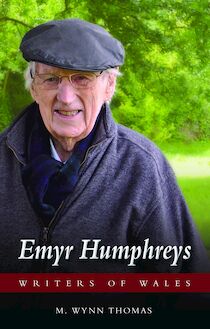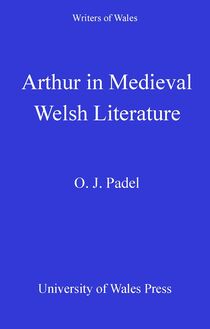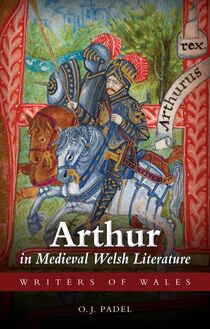-
 Univers
Univers
-
 Ebooks
Ebooks
-
 Livres audio
Livres audio
-
 Presse
Presse
-
 Podcasts
Podcasts
-
 BD
BD
-
 Documents
Documents
-
- Cours
- Révisions
- Ressources pédagogiques
- Sciences de l’éducation
- Manuels scolaires
- Langues
- Travaux de classe
- Annales de BEP
- Etudes supérieures
- Maternelle et primaire
- Fiches de lecture
- Orientation scolaire
- Méthodologie
- Corrigés de devoir
- Annales d’examens et concours
- Annales du bac
- Annales du brevet
- Rapports de stage
La lecture à portée de main
Vous pourrez modifier la taille du texte de cet ouvrage
Découvre YouScribe en t'inscrivant gratuitement
Je m'inscrisDécouvre YouScribe en t'inscrivant gratuitement
Je m'inscrisEn savoir plus
Vous pourrez modifier la taille du texte de cet ouvrage
En savoir plus

Description
Published to mark the centenary of his birth in 2019, this is the first comprehensive and authoritative study of the life and work (excluding only work for television) of the major Welsh writer Emyr Humphreys. During the course of a career spanning half a century, and dating back to the 1950s when he collaborated with the likes of Graham Greene, Patrick Heron, Saunders Lewis, Richard Burton, Siân Phillips and Peter O’Toole, Humphreys has published some two dozen works of fiction (including Outside the House of Baal, the greatest novel of anglophone Welsh literature) as well as highly distinctive poetry, seminal essays, and a visionary cultural history of Wales. In addition to offering a critical and interpretative survey of this remarkable, distinguished body of work, the present volume also sets Humphreys’s output in the context of the dramatic, transformative decades in recent Welsh history during which it was produced.
Prefatory Note Key to Abbreviations
The Life
Preoccupations
Protestant novelist
Fiction: first phase
Poems, essays, cultural history
Fiction: last phase
Conclusion
Notes Select Bibliography Index
Sujets
Informations
| Publié par | University of Wales Press |
| Date de parution | 01 septembre 2018 |
| Nombre de lectures | 0 |
| EAN13 | 9781786832986 |
| Langue | English |
Informations légales : prix de location à la page 0,0574€. Cette information est donnée uniquement à titre indicatif conformément à la législation en vigueur.
Extrait
Writers of Wales
Emyr Humphreys
Editors:
Jane Aaron
M. Wynn Thomas
Andrew Webb
Honorary Series Editor:
R. Brinley Jones
Meic Stephens †
Other titles in the Writers of Wales series:
Christopher Meredith (2018), Diana Wallace
B. L. Coombes (2017), Bill Jones and Chris Williams
Owen Rhoscomyl (2016), John S. Ellis
Dylan Thomas (2014), Walford Davies
Gwenlyn Parry (2013), Roger Owen
Welsh Periodicals in English (2013), Malcolm Ballin
Ruth Bidgood (2012), Matthew Jarvis
Dorothy Edwards (2011), Claire Flay
Kate Roberts (2011), Katie Gramich
Geoffrey of Monmouth (2010), Karen Jankulak
Herbert Williams (2010), Phil Carradice
Rhys Davies (2009), Huw Osborne
R. S. Thomas (2006), Tony Brown
Ben Bowen (2003), T. Robin Chapman
James Kitchener Davies (2002), M. Wynn Thomas
Writers of Wales
Emyr Humphreys
M. Wynn Thomas
© M. Wynn Thomas, 2018
All rights reserved. No part of this book may be reproduced in any material form (including photocopying or storing it in any medium by electronic means and whether or not transiently or incidentally to some other use of this publication) without the written permission of the copyright owner except in accordance with the provisions of the Copyright, Designs and Patents Act 1988. Applications for the copyright owner’s written permission to reproduce any part of this publication should be addressed to the University of Wales Press, University Registry, King Edward VII Avenue, Cardiff CF10 3NS.
www.uwp.co.uk
British Library Cataloguing-in-Publication Data A catalogue record for this book is available from the British Library.
ISBN 978-1-78683-296-2 e-ISBN 978-1-78683-298-6
The right of M. Wynn Thomas to be identified as author of this work has been asserted by him in accordance with sections 77, 78 and 79 of the Copyright, Designs and Patents Act 1988.
The publisher acknowledges the financial support of the Welsh Books Council.
The publisher has no responsibility for the persistence or accuracy of URLs for any external or third-party internet websites referred to in this book, and does not guarantee that any content on such websites is, or will remain, accurate or appropriate.
Cover image: Emyr Humphreys in Llangadwaladr churchyard, Anglesey, 2013. Photograph by Dewi Humphreys.
Contents
Prefatory Note
Key to Abbreviations
1 The Life
2 Preoccupations
3 Protestant novelist
4 Fiction: first phase
5 Poems, essays, cultural history
6 Fiction: last phase
7 Conclusion
Notes
Select Bibliography
Prefatory Note
Some parts of the discussion that follows are heavily revised versions of materials of mine on Emyr Humphreys previously published in the following places:
Emyr Humphreys (Penygroes: Gwasg Pantycelyn, 1989).
Two essays in Internal Difference: Twentieth-Century Writing in Wales (Cardiff: University of Wales Press, 1992).
Chapter in In the Shadow of the Pulpit: Literature and Nonconformist Wales (Cardiff: University of Wales Press, 2010).
Two essays in All That is Wales: Collected Essays (Cardiff: University of Wales Press, 2017).
Introduction to Conversations and Reflections and interviews in that volume (Cardiff: University of Wales Press, 2002).
Interviews in Arwel Jones (ed.), Dal Pen Rheswm (Caerdydd: Gwasg Prifysgol Cymru, 1999).
Abbreviations
LK The Little Kingdom (London: Eyre and Spottiswoode, 1946)
VS The Voice of a Stranger (London: Eyre and Spottiswoode, 1949)
CH A Change of Heart (London: Eyre and Spottiswoode, 1951)
HF Hear and Forgive (London: Macdonald, 1952)
MA A Man’s Estate (London: Eyre and Spottiswoode, 1955)
IW The Italian Wife (London: Eyre and Spottiswoode, 1957)
TE Y Tri Llais (Llandybie: Llyfrau’r Dryw, 1958); A Toy Epic (London: Eyre and Spottiswoode, 1958)
G The Gift (London: Eyre and Spottiswood, 1963)
OHB Outside the House of Baal (London: Eyre and Spottiswoode, 1965)
N Natives (London: Secker and Warburg, 1968)
NW National Winner (London: Macdonald, 1971)
FB Flesh and Blood (London: Hodder and Stoughton, 1974)
BF The Best of Friends (London: Hodder and Stoughton, 1978)
AT The Anchor Tree (London: Dent, 1980)
TT The Taliesin Tradition (London: Black Raven Press, 1983)
J Jones (London: Dent, 1984)
SE Salt of the Earth (London: Dent, 1985)
AH An Absolute Hero (London: Dent, 1986)
OS Open Secrets (London: Dent, 1988)
BA Bonds of Attachment (London: Macdonald, 1991)
US Unconditional Surrender (Bridgend: Seren, 1996)
GD The Gift of a Daughter (Bridgend: Seren, 1998)
CP Collected Poems (Cardiff: University of Wales Press, 1999)
DPR Dal Pen Rheswm (Caerdydd: Gwasg Prifysgol Cymru, 1999)
GS Ghosts and Strangers (Bridgend: Seren, 2001)
CR Conversations and Reflections (Cardiff: University of Wales Press, 2002)
OPP Old People are a Problem (Bridgend: Seren, 2003)
S The Shop (Bridgend: Seren, 2005)
WW The Woman at the Window (Bridgend: Seren, 2009)
1
THE LIFE
Born in 1919, Emyr Humphreys may be usefully regarded as the last great survivor of the heroic age of twentieth-century Welsh culture. Extending roughly from the First World War to the 1970s, the period was heroic in the sense that it could boast a cohort of writers who dedicated their conspicuous talents to infusing political, as well as cultural, energy into Welsh life sufficient to arouse their country out of the long torpor of its meekly subservient position within a profoundly anglocentric ‘British’ polity. Humphreys shared with those earlier writers – several of whom he came to know – the view that the Welsh were as a people ‘lacking that inner conviction that a free nation has of existing for its own sake’. ( CR , 147) Exploring this psycho-cultural condition became his great undertaking as a creative writer. And his fiction may be also regarded as an attempt to ensure the self-perpetuation of a nation whose future has, virtually since its beginnings in the early post-Roman period, been continuously uncertain. But then, ‘all art,’ in Humphreys’s view, ‘is about survival.’ ( CR , 119)
The heroic age could further be broadly subdivided into two. The heroic aspects of the interwar period were largely confined to the transformative achievements of a generation of Welsh-language writer-activists of a quality unparalleled since the golden age of late medieval times. And among the culturally ‘committed’ of this remarkable constellation of talents one could number T. Gwynn Jones, Saunders Lewis, Kate Roberts, Ambrose Bebb, E. Tegla Davies, R. Williams Parry, W. J. Gruffydd, Gwenallt and others. While there were, by the late 1930s, some stirrings of like political energy among some of the young anglophone writers of the Dylan Thomas generation centred on the maverick periodical Wales and its editor, the wayward and wilful ringmaster of talent, Keidrych Rhys, it was not until the 1960s that a grouping of English-language writers emerged steadily animated by a liberationist political passion.
As for the heroic politico-cultural commitments of the transitional period between the Second World War and the 1960s, they were almost exclusively the preserve of two giant talents: R. S. Thomas and his friend and companion-in-arms Emyr Humphreys. Anglophone writers both, they nevertheless deliberately identified themselves with the important Welsh-language figures of the previous generation, and took as mentor and guru the greatest of these, Saunders Lewis, remarkable for his creative talents, his controversial ideological genius, his charismatic personality and his fearless political activism. 1 Of all the ‘heroic’ writers considered above it could be said, in Lewis’s words, that
What these writers and poets have in common is an awareness that the Welsh nation may be dying of indifference and sloth and that a literature of a thousand years may end with a whimper. In that they have, as it were, an epitome of what now overhangs all Europe, of what threatens humanity, a destruction of civilization through apathy. 2
Thomas and Humphreys alike could be not inappropriately styled ‘the sons of Saunders’. Not that Humphreys’s views could be comfortably conflated with those of Lewis. He has always been a much more staunch and ardent advocate of Wales’s Nonconformist heritage than Lewis, the Catholic convert who (despite, or because of, being the son of a prominent Welsh Calvinistic minister) was ever tart of tongue on the subject. And while both were ardent Europhiles, it is to Germany and Italy that Humphreys looks for examples of European culture at its richest, while Lewis was besotted with the imperious culture of France, like his own hero, the nineteenth-century controversialist and visionary cultural nationalist Emrys ap Iwan.
But while Humphreys has always emphasised the social role of the Welsh writer, he has not been unaware of the perils and tensions associated with a writer’s attempt to serve her or his community by active and practical cultural interventions. It was Saunders Lewis, after all, who – with more than half an eye to his own case – warned the young R. S. Thomas to take seriously Yeats’s admonition to young writers to aim either at ‘perfection of the life’, or at ‘perfection of the art’: to attempt both was likely to lead only to creative suicide. And Humphreys himself is on record as stating that so many of the great figures of the remarkable generation of talent that inexplicably appeared in Wales during the first half of the twentieth century had, in the end, for all their brilliance, somewhat underachieved as writers because too much of their creative energies had been self-sacrificingly deflected into cultural and political activities of vital importance to the survival of their people. ‘How was poor old Kate Roberts going to find time to write lengthy novels,’ he poignantly enquires, naming one of the most distinguished short story writers not only of Wales but of Europe, ‘while she was killing herself keeping Y Faner [Wales’s leading Welsh-
-
 Univers
Univers
-
 Ebooks
Ebooks
-
 Livres audio
Livres audio
-
 Presse
Presse
-
 Podcasts
Podcasts
-
 BD
BD
-
 Documents
Documents
-
Jeunesse
-
Littérature
-
Ressources professionnelles
-
Santé et bien-être
-
Savoirs
-
Education
-
Loisirs et hobbies
-
Art, musique et cinéma
-
Actualité et débat de société
-
Jeunesse
-
Littérature
-
Ressources professionnelles
-
Santé et bien-être
-
Savoirs
-
Education
-
Loisirs et hobbies
-
Art, musique et cinéma
-
Actualité et débat de société
-
Actualités
-
Lifestyle
-
Presse jeunesse
-
Presse professionnelle
-
Pratique
-
Presse sportive
-
Presse internationale
-
Culture & Médias
-
Action et Aventures
-
Science-fiction et Fantasy
-
Société
-
Jeunesse
-
Littérature
-
Ressources professionnelles
-
Santé et bien-être
-
Savoirs
-
Education
-
Loisirs et hobbies
-
Art, musique et cinéma
-
Actualité et débat de société
- Cours
- Révisions
- Ressources pédagogiques
- Sciences de l’éducation
- Manuels scolaires
- Langues
- Travaux de classe
- Annales de BEP
- Etudes supérieures
- Maternelle et primaire
- Fiches de lecture
- Orientation scolaire
- Méthodologie
- Corrigés de devoir
- Annales d’examens et concours
- Annales du bac
- Annales du brevet
- Rapports de stage




















